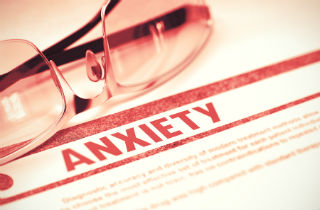“How do I know if my anxiety is normal?”
Self control, addiction issues and emotional growth are all a part of recovery. Perhaps, at varying levels, we do all deal with anxiety daily. But when is self-help not enough? Here, we’ll offer a distinction in between normal anxiety we can usually manage on our own and abnormal anxiety that warrants professional help. And we invite your questions about anxiety self-help and treatment options below.
The purpose of anxiety
Sometimes, anxiety is helpful when it urges us to act quickly when we don’t have the time to ponder our options, also known as “fight or flight.” Anxiety can prompt us to work harder on something, and it can keep us safe from harm by making us more alert or cautious. And every day we face the likelihood that someone or something will test our comfort zones, our values, or our own personal daily agendas. How we react to these unsolicited events is something that makes each of us unique. Typically, stress plays a major role in our response and one of the most common symptoms of stress is anxiety, which can present itself in any of the following forms:
- dry mouth
- fatigue
- jitteriness
- lump in throat
- racing or pounding heart
- startled reactions
- sweating
- trembling
- worry
Anxiety triggers
There are triggers for anxiety that can occur regularly, such as:
• Confusion from a lack of knowledge or unclear communication
• Getting stuck in traffic
• Lack of time to complete goals
• Spilling, dropping, bumping, stubbing, missing, forgetting, etc.
• Technical issues with a computer or phone
• Turbulent relations with another person or group
There are also larger scale triggers that, while they can have a high impact on our lives, occur considerably less often, such as:
• Coping with illness (our own or a loved one’s)
• Coping with the loss of a loved one
• Firsts: day of school, day on the job, time away from home, dates
• Important exams, interviews, performances
• Life changes: marriage, divorce, birth of a child, relocation
• Public speaking
Normal anxiety
Does reading through these lists create an anxious feeling? Most of us are all too familiar with what it’s like to live through these triggers. In fact, it’s fair to say that reacting with anxiety to experiences like the ones listed above is reasonable, or normal.
The physical and emotional symptoms of normal anxiety are typically short lived. Even with intense episodes, the anxiety can usually be tempered with rational thinking and with self-help activities like exercise, a healthy diet, proper sleep, and meditative relaxation techniques. However, when anxiety occurs without a known trigger and begins to interfere with the functions of daily life, an anxiety disorder may be present. Seeking professional help may be the best (and sometimes only) course of action.
Abnormal anxiety
Abnormal anxiety is chronic, meaning it’s constantly recurring for long stretches of time, and it cannot be remedied with mere reasoning. When left untreated, the sufferer experiences incessant worry, problems with concentration and memory, and often retreats into reclusive behavior. Difficulties then follow at home, at work, or with relationships. 40 million adults in the U.S. are affected by an anxiety disorder, which can include:
• Generalized anxiety disorder vs PTSD
• Obsessive-compulsive disorder (OCD)
• Panic disorder
• Post-traumatic stress disorder (PTSD)
• Social anxiety disorder
How can I treat anxiety?
Anxiety disorders are among the most frequently diagnosed psychiatric disorders in the U.S. and affect kids and adults. We are far from alone with our anxieties, normal or abnormal, and continued education can bring treatment to those not living the lives they desire. Fortunately, anxiety disorders are easily controllable and their complications are avoidable with proper treatment, which may take place in a residential, day, or outpatient facility. Treatment can include individual and group psychotherapy sessions and, if necessary, medication. Motivational interviewing preparing people to change addictive behavior can also help. If you’re suffering from chronic anxiety, or care about someone else who is, seek help right away.
Your questions about anxiety
Please let us know if you have any questions about anxiety. We will do our best to answer your questions personally and promptly. What are some helpful tricks and techniques you use for relieving your anxiety? Please share in the comments below so we can all benefit from each others’ tools!








